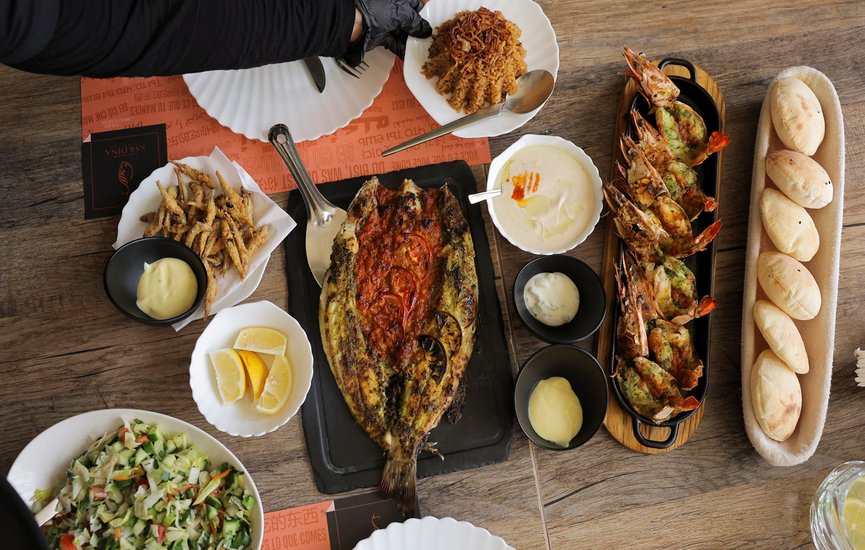Abu Dhabi – The second edition of Global Food Week concluded today at the ADNEC Centre in Abu Dhabi, highlighting global agricultural innovations and food security initiatives, under the leadership of Sheikh Mansour bin Zayed Al Nahyan, Vice President and Chairman of the Abu Dhabi Agriculture and Food Safety Authority (ADAFSA).
Running from October 21–23, this year’s event saw significant growth, with exhibition space expanding by 15% to 33,542 square meters. Morocco emerged as a standout among 75 participating countries, demonstrating the depth of agricultural cooperation between the two nations.
Overall participation surged to 2,070 companies and brands, with Emirati representation comprising 1,055 national companies, or 51% of the total participants. Morocco, however, made a substantial impact, presenting a diverse delegation of cooperatives and agricultural producers. The Moroccan pavilion, spanning over 300 square meters, attracted significant attention from visitors and officials.
Expanding Market Access for Small Producers
Mahdi Arrifi, Director General of Morocco’s National Agency for Agricultural Development (ADA), discussed the importance of Morocco’s continued involvement. “This marks Morocco’s 13th participation in the Abu Dhabi Food Exhibition, reflecting the strong and strategic relationship between Morocco and the UAE,” Arrifi noted.
He elaborated on the scope of the Moroccan delegation: “The pavilion features 25 representatives showcasing products from 32 cooperatives specializing in authentic Moroccan goods.”
This year’s participation highlighted inclusivity, with 52% of cooperative members being women, a major focus for the event. Additionally, nearly 60% of the cooperatives were exhibiting internationally for the first time, aligning with Morocco’s broader aim to expand market access for small-scale producers. “This initiative supports cooperatives in learning about global trends and establishing business partnerships in the UAE, the Gulf, and the broader Middle East,” Arrifi added.
The ADA provided extensive preparatory support, including product improvement, quality enhancement, and marketing guidance. This included training in product presentation, packaging, labeling, and customer interaction. One of the event’s key features was the facilitation of over 250 B2B meetings between Moroccan cooperatives and UAE business operators, which are expected to bring tangible economic benefits.
Strengthening Bilateral Relations and Boosting Rural Prosperity
Morocco’s Ambassador to the UAE, Ahmed Tazi, visited the pavilion, praising the strong Moroccan presence. “I’m excited to visit this stand during Global Food Week. It’s inspiring to see that 75% of the participants are women, showcasing their exceptional work in packaging and producing natural, biological products,” Tazi said. He also highlighted the transformative impact of the event, noting that many of the participants were traveling abroad for the first time.
Tazi emphasized the growing interest in Moroccan products in the UAE, stating, “Emiratis love Moroccan goods, and we greatly appreciate the people of the UAE and their leadership.”
Moroccan Date Producers at the Forefront
As part of the 11th Abu Dhabi Date Palm Exhibition, which took place within Global Food Week, Moroccan date producers showcased their premium varieties to international buyers. The exhibition, led by Professor Abdelouahab Zaid, Secretary General of the Khalifa International Award for Date Palm and Agricultural Innovation, gathered producers from 18 countries across 90 booths to highlight innovations in date cultivation, processing, and marketing.
Among the Moroccan participants was Difat Ziz, an economic interest group representing 31 cooperatives from the Erfoud-Errachidia region. Radouane Sadoq, representing the group, shared insights into their premium date varieties, including “Mejhoul, Feggous, and Bouslikhen dates.”
“Our cooperative manages the entire production chain—from seedlings to date production, cleaning, packaging, and storage,” Sadoq explained. The cooperative supports 554 producers, including 155 women, across 514 hectares with 113,644 date palm trees. Sadoq pointed out that the Erfoud area is renowned as the birthplace of the world-famous Mejhoul date variety.
Their processing unit, operational since 2013, has a capacity of 950 tons, positioning them for significant export potential. Sadoq noted their past participation in exhibitions in France, Jordan, and Egypt, further cementing their growing international presence.
Aligning with Morocco’s Generation Green 2020-2030 Plan
The participation of Moroccan agricultural producers in Global Food Week aligns with Morocco’s Generation Green 2020-2030 plan, aimed at expanding the country’s date palm cultivation to support rural development and boost agricultural exports. This initiative underscores Morocco’s strengthening agricultural ties with the UAE and its growing role in the global agricultural landscape.
